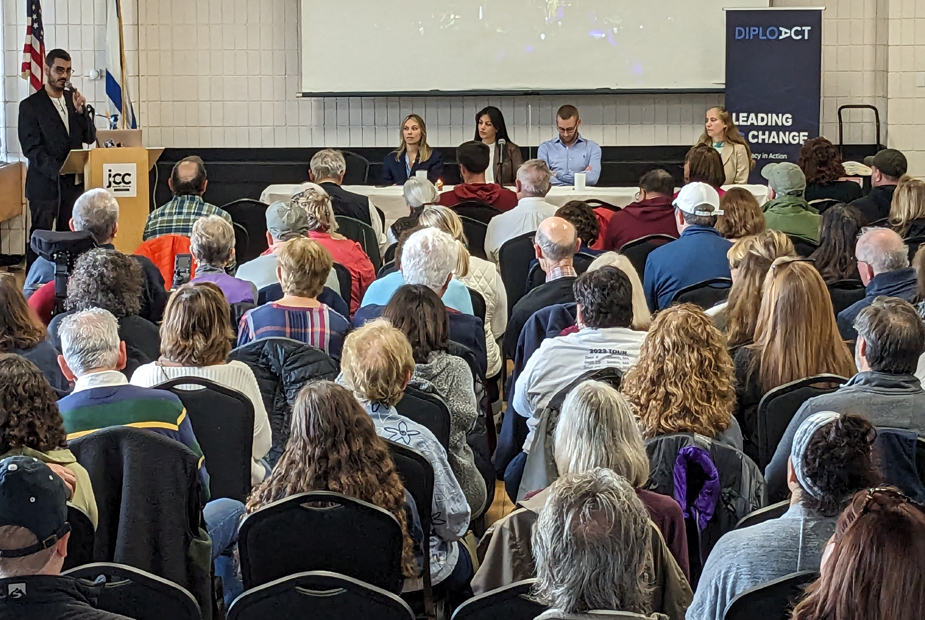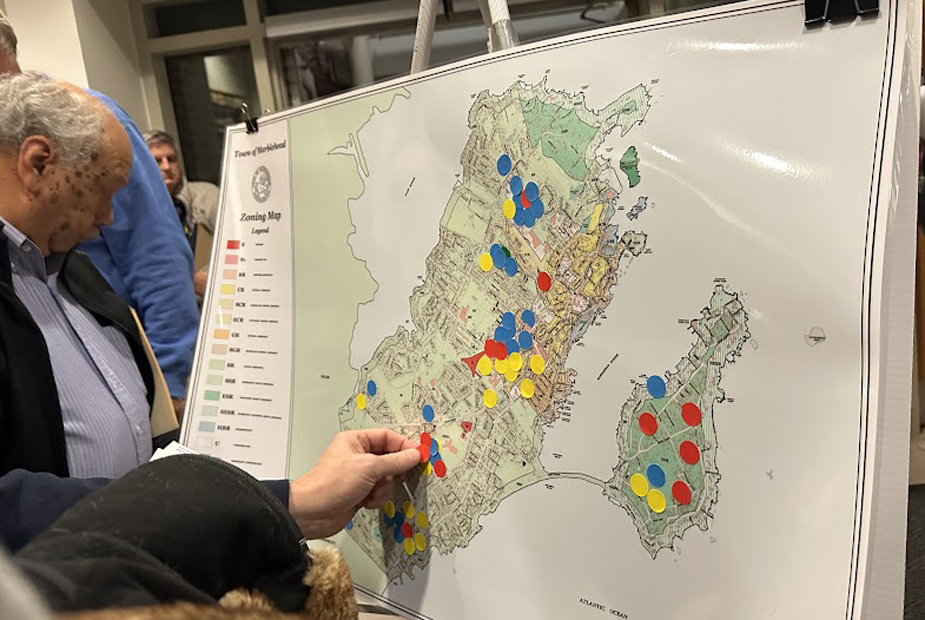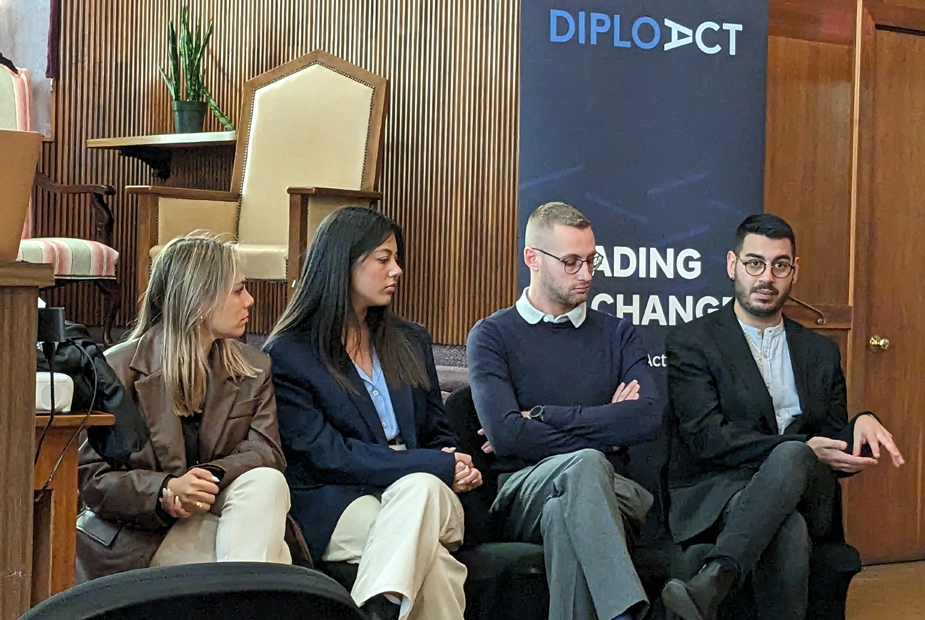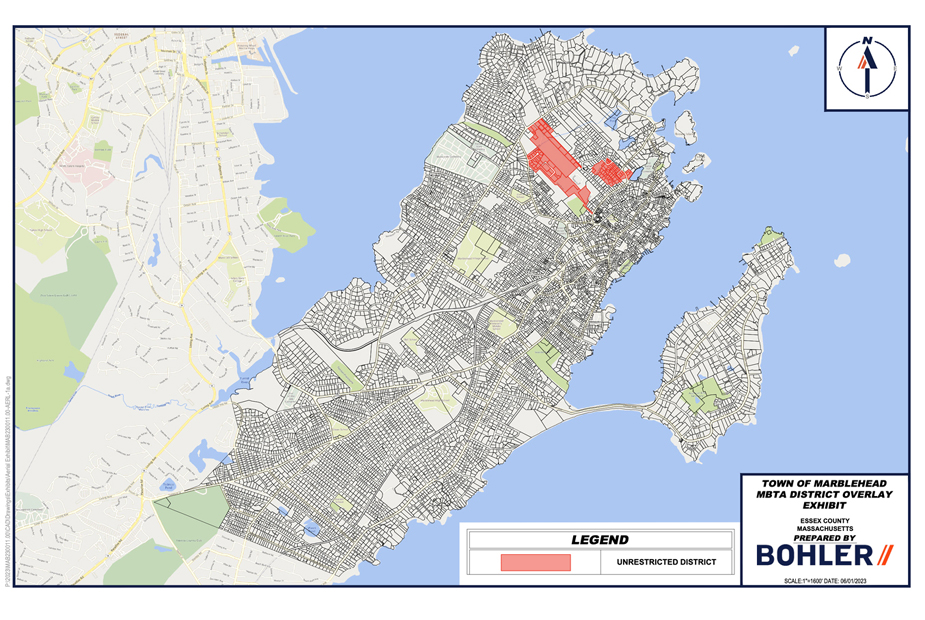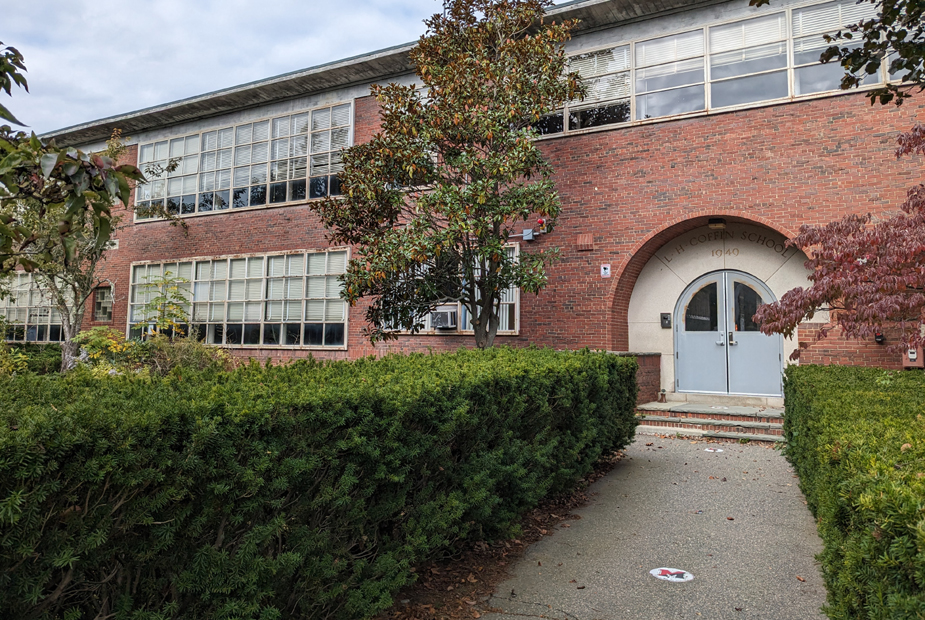Tears, Information, and Inspiration As Four Israelis Visit Marblehead’s JCC
On Sunday, November 5, 2023, about fifty participants were expected to attend an event at the Jewish Community Center in Marblehead to hear from four visiting Israelis about their experiences since the Hamas attack on civilians in Israel on October 7th. But extra chairs had to be added at the last minute to accommodate the larger-than-anticipated crowd.
Over the course of about ninety minutes, the audience heard stories of terror and loss interspersed with messages of optimism and a discussion of the lessons to be learned from lives cut short too soon. In the front of the room sat an empty chair meant to represent one of the more than 200 hostages still being held in Gaza, and many participants joined together both to recite the Kaddish—the Jewish prayer said on behalf of those who have died—and to sing Am Yisrael Chai—a song that celebrates the ongoing survival of the Jewish people.
Jonathan Elkhoury—a Christian Arab who originally fled Lebanon for Israel and is now an Israeli citizen—began the presentation with slides demonstrating two different conceptions of freedom, juxtaposing images of the celebrants dancing at the Tribe of Nova concert in southern Israel with those of the Hamas terrorists celebrating as they entered Israel with machine guns and grenades. These two visions of freedom collided on the morning of October 7th, Elkhoury said, and when that happened, “dancing became running, heaven became hell, and what was supposed to be a celebration of love and peace turned into a festival of death.”
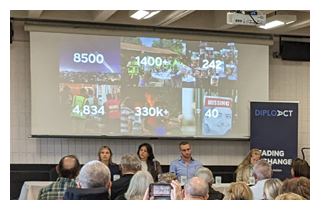 Elkhoury took some time to outline the extent of the bloodshed that the Hamas terrorist attack inflicted on Israel, chronicling the more than 8,500 rockets that have been launched recently from Gaza into Israel—all aimed at civilian targets. He also explained that over 1,400 people in Israel have been murdered and at least 242 are still being held hostage, including children, women, and the elderly. Nearly 5,000 people in Israel have been injured, 40 are still missing with their whereabouts unknown, and more than 330,000 have been displaced from their homes.
Elkhoury took some time to outline the extent of the bloodshed that the Hamas terrorist attack inflicted on Israel, chronicling the more than 8,500 rockets that have been launched recently from Gaza into Israel—all aimed at civilian targets. He also explained that over 1,400 people in Israel have been murdered and at least 242 are still being held hostage, including children, women, and the elderly. Nearly 5,000 people in Israel have been injured, 40 are still missing with their whereabouts unknown, and more than 330,000 have been displaced from their homes.
Elkhoury also provided a brief historical overview of Gaza, acknowledging that it is often described by the international press as an “open-air prison.” It is “really important to understand,” he said, that in 1948—when Israel first became a recognized country—the Gaza strip was under Egyptian rule. But rather than choosing to claim the land, Egypt instead maintained Gaza as a refugee camp, forcing the Palestinians to stay there rather than incorporating them as Egyptian citizens. In 1967, when Egypt and many other Arab countries again attacked Israel, Israel took control of the Gaza strip. However, as part of evolving attempts to achieve peace with its neighbors—efforts that included returning the Sinai desert to Egypt in exchange for a peace treaty—Israel began to withdraw from Gaza in 1993 with the signing of the Oslo Accords. Some Israeli settlements remained in the north at that time, but Gaza was almost entirely under Palestinian control. In 2005, Israel decided to withdraw from Gaza completely, forcing all of the Jews who had been living there to leave, and enabling the Palestinian Authority to govern the entire territory. The rockets from Gaza into Israel started soon thereafter. Hamas won in elections held in 2006, after which a violent civil war saw the ouster of the Palestinian Authority. Hamas—an internationally recognized terrorist organization—has ruled Gaza ever since.
Marbleheader Yael Magen—who has dual American-Israeli citizenship and family in Israel—also spoke during the presentation, addressing what she referred to as significant “misinformation.” Noting that many commentators, now and in the past, have criticized Israel for lack of proportionality because there are—tragically—so many deaths of Palestinians in Gaza, Magen explained that the disproportionate death toll is because the two different societies have taken vastly different approaches to protecting civilian life. Israel, she explained, has mandated bomb shelters in every home and in every neighborhood. The Iron Dome—a sophisticated missile-defense system—was developed to intercept the near-constant barrage of rockets sent into Israeli cities from surrounding areas. Hamas, by contrast, has diverted humanitarian supplies meant for the citizens of Gaza, Magen noted, not only taking for themselves food, water, and medicine but also using building materials to construct underground tunnels—not to provide protection for civilians but to allow terrorists to more easily access Israel and avoid detection. Most importantly, she added, Hamas terrorists locate their headquarters and weapons supplies in apartment buildings, schools, and hospitals in order to use civilians as human shields.
Building on Magen’s statement, Elkhoury noted that Hamas’s animosity and violence was not limited only to Jews. There were people of every religion and nationality murdered and taken hostage at the music festival, he said. Specifically, Elkhoury noted, a Muslim man from East Jerusalem pleaded in Arabic for his life but was killed anyway because he was at the festival with Jews.
During a preview event with a smaller audience held several days earlier, Elkhoury took the opportunity to provide more context about Hamas. “Hamas’s foundations are rooted in the Muslim Brotherhood movement,” he said, “which is an extreme Muslim movement calling for terrorism and destruction of democratic and western values… As we speak, as Hamas captures innocent citizens and uses the Gazan people as human shields, their leaders are currently in a hotel in Qatar, and their net worth is more than $3 billion US dollars.”
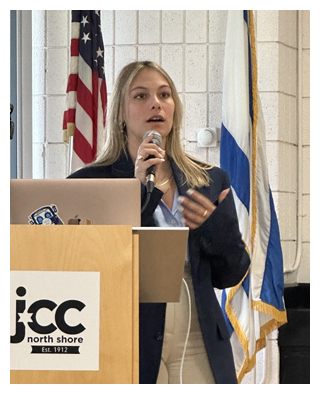 While focusing in part on the geopolitical situation and its historical backdrop, the central core of Sunday’s presentation involved personal stories about three individuals whose lives were cut short at the Tribe of Nova festival on October 7th.
While focusing in part on the geopolitical situation and its historical backdrop, the central core of Sunday’s presentation involved personal stories about three individuals whose lives were cut short at the Tribe of Nova festival on October 7th.
Yuval Teperberg, Bar Suisa, and Shay Rubinstein all spoke about their close friends who were killed that day. They told stories of terror and heroism. Noam, a woman who served as a paramedic in the Israeli army during her service, left her hiding place to provide medical care to another wounded Israeli. She was brutally murdered, and her body was not identified until a week later. Yonatan called his mother just before he was killed to say “I love you” and “I’m sorry I couldn’t save myself.” Omri was one of the very first to be murdered when the terrorists descended on the festival. All three were in their twenties when they died.
While Teperberg, Suisa, and Rubinstein shared these tragic stories of loss, they also explained how they were using the lessons their friends had taught them—about celebrating life, expressing love, and living with optimism—to find inspiration to move forward.
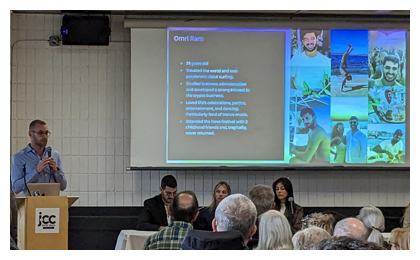 During the question-and-answer session following the formal presentation, the focus was similarly on what concerned Americans—Jewish and non-Jewish alike—can do to help reinforce values of life, freedom, and democracy. One audience member expressed her concern that American students are not learning the truth about the goals of Hamas; another stood up to ask those in attendance to put out signs on their homes declaring their support for Israel. While acknowledging the fear associated with increasing anti-semitic events in the United States, she emphasized the importance of stepping forward and vocally supporting one’s values, because it will encourage others to do the same. “Courage is contagious,” she said.
During the question-and-answer session following the formal presentation, the focus was similarly on what concerned Americans—Jewish and non-Jewish alike—can do to help reinforce values of life, freedom, and democracy. One audience member expressed her concern that American students are not learning the truth about the goals of Hamas; another stood up to ask those in attendance to put out signs on their homes declaring their support for Israel. While acknowledging the fear associated with increasing anti-semitic events in the United States, she emphasized the importance of stepping forward and vocally supporting one’s values, because it will encourage others to do the same. “Courage is contagious,” she said.

